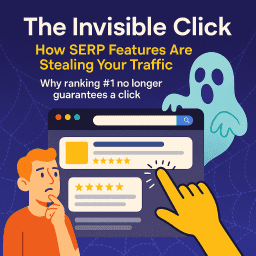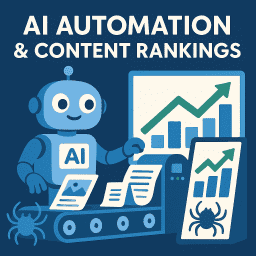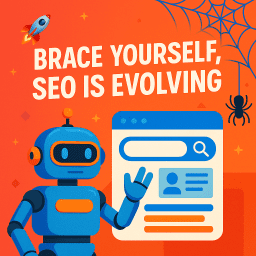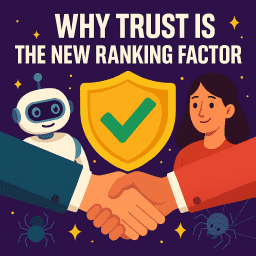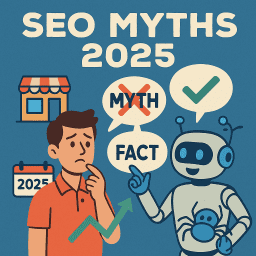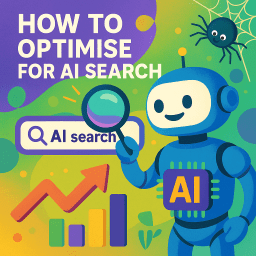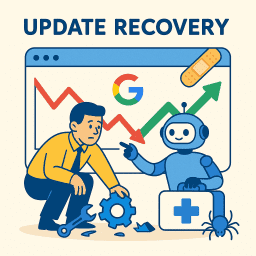How to Build an Author Profile That Strengthens E-E-A-T in 2025
Practical ways to boost author trust, expertise and authority
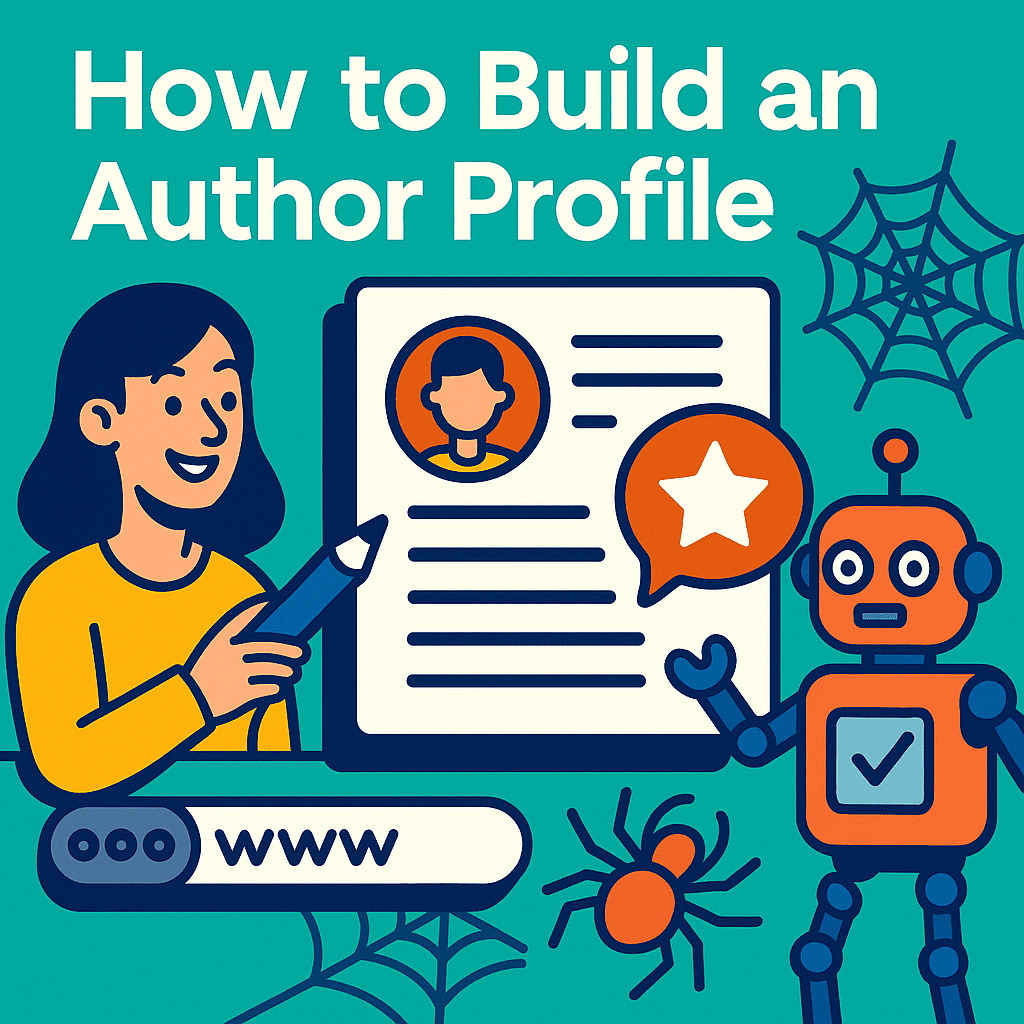
📝 The Author Advantage: Boosting Your SEO Credibility
In 2025, Google’s focus on E-E-A-T — Experience, Expertise, Authoritativeness, and Trustworthiness — is stronger than ever. And one of the most powerful ways to demonstrate these qualities is through a well-developed author profile. 🌟 Your author profile can influence how Google evaluates your content, which in turn affects your search rankings. In this guide, we’ll break down how to build an author profile that enhances E-E-A-T and helps your site earn greater trust and visibility.
💡 Why Author Profiles Matter for E-E-A-T
Google uses a wide range of signals to assess the credibility of your content. One of these is who wrote it. An author with verifiable expertise and a strong online presence can help boost your content’s perceived value. This is particularly important in YMYL (Your Money or Your Life) niches such as health, finance, and law, where accuracy and trust are critical.
A strong author profile:
- ✅ Shows users (and Google) who’s behind your content
- ✅ Signals subject matter expertise
- ✅ Enhances transparency and trust
- ✅ Supports brand authority
📝 Key Elements of an Effective Author Profile
Here’s what your author profile should include to support E-E-A-T:
- 📌 Full name: Use your real, consistent name across platforms.
- 📌 Professional headshot: A high-quality image that appears on your site and elsewhere.
- 📌 Clear bio: Include credentials, experience, and areas of expertise relevant to your content.
- 📌 Links to social profiles: LinkedIn, Twitter/X, or relevant professional networks.
- 📌 Links to published work: Showcase where else you’ve been published to reinforce authority.
- 📌 Contact information (where appropriate): Adds transparency.
🌐 Building a Strong External Footprint
Google looks beyond your site. Build your author authority by:
- ✅ Creating or improving your LinkedIn profile
- ✅ Contributing to reputable third-party publications
- ✅ Getting listed on expert directories where relevant
- ✅ Engaging in discussions in your field on social platforms
The goal is to establish a clear, verifiable connection between your author name and your field of expertise.
⚡ How to Implement Author Profiles on Your Website
Ensure your author profile is easy for users (and Google) to find and understand:
- 💡 Use author bylines on all blog posts and articles
- 💡 Link the byline to a dedicated author page or detailed bio
- 💡 Add schema markup (Person or Author schema) to help Google parse the information
- 💡 Include author profiles in your About section or Team page
🔑 Author Schema for SEO
Implementing structured data helps Google associate your author profile with your content. Include:
- 📌
name - 📌
sameAslinks (e.g. LinkedIn, personal site) - 📌
description - 📌
image
Test your schema with Google’s Rich Results tool to ensure accuracy.
📈 Signals Google Associates with Trusted Authors
Based on Google documentation and SEO studies, author signals may include:
- ✅ Consistency of name and credentials across content
- ✅ Mentions in reputable third-party sources
- ✅ Backlinks to content attributed to the author
- ✅ Strong social proof (e.g. followers, engagements)
🛠️ Practical Ways to Enhance Author Signals
- 🌟 Write detailed author bios that explain why you’re qualified to cover the topic
- 🌟 Get cited or mentioned by other reputable sites
- 🌟 Contribute expert commentary to industry blogs and media
- 🌟 Keep social profiles active and aligned with your professional identity
- 🌟 Avoid publishing low-quality or irrelevant content under your author name
Also Read:
E-E-A-T in 2025: How to Build Real Authority in Your Niche
User-First E-E-A-T: What Actually Drives SEO and GEO
📝 Final Thoughts
In 2025, building a strong author profile isn’t optional if you want to succeed in SEO — it’s essential. As Google doubles down on rewarding trustworthy, authoritative content, your author profile plays a key role in proving that your site offers genuine value. A well-crafted author profile can help your content stand out, especially in competitive and sensitive niches where trust is everything.
Remember that building E-E-A-T through your author profile is a process. It involves both on-site improvements (like detailed bios and schema) and off-site efforts (like thought leadership and third-party recognition). Don’t treat it as a box-ticking exercise. The goal is to authentically demonstrate who you are, what you know, and why users — and Google — should trust you. 🚀
❓ Frequently Asked Questions
Do I need an author profile for every blog post?
Yes — consistent author bylines help establish authority across your content.
What’s the best platform to build author authority?
LinkedIn is key, but also aim for guest posts and mentions on authoritative industry sites.
Does Google actually read author bios?
Google parses structured data and looks at author signals across the web to assess authority.
Can I use a pen name and still build E-E-A-T?
It’s possible, but harder — transparency and verifiable expertise are important.
What’s the easiest E-E-A-T improvement for authors?
Start with detailed bios and consistent use of author schema on your site.
💬 What the Experts Are Saying
- Marie Haynes: “Clear author signals are more important than ever for Google’s trust systems.”
- John Mueller (Google): “Good content isn’t just about what’s written, but who’s writing it.”
- Lily Ray: “Author profiles are a simple but powerful way to boost E-E-A-T.”
“Your author profile isn’t just a name on a page — it’s a signal of trust. Make it count.”
– David Roche






